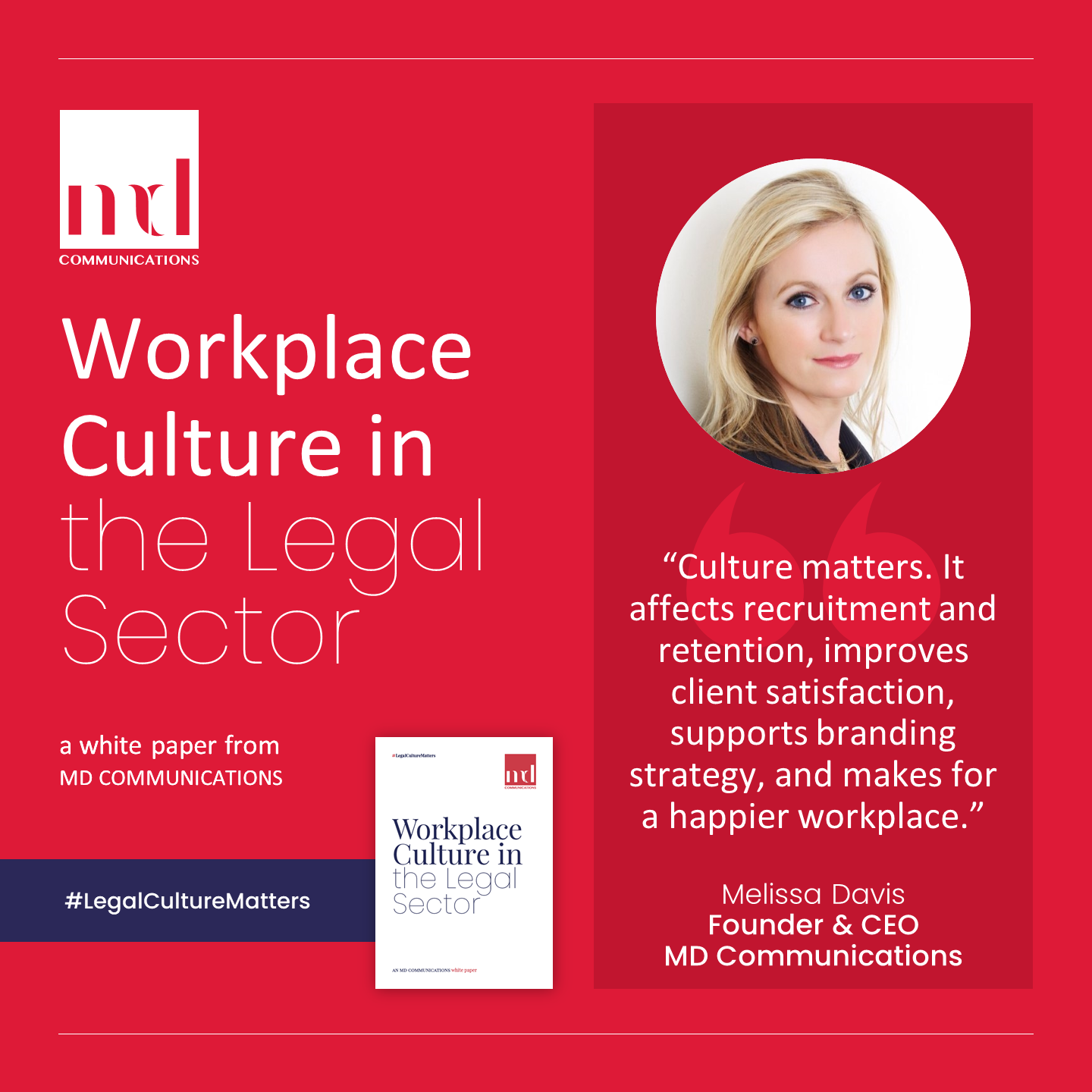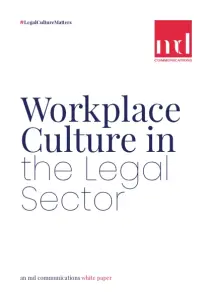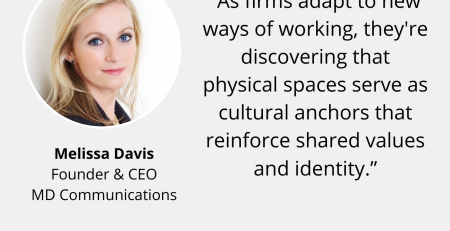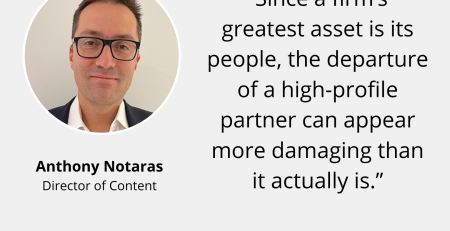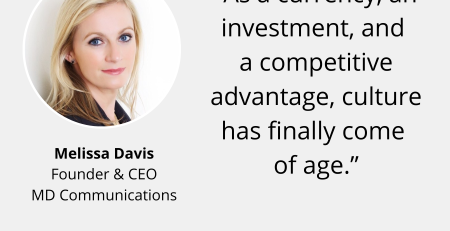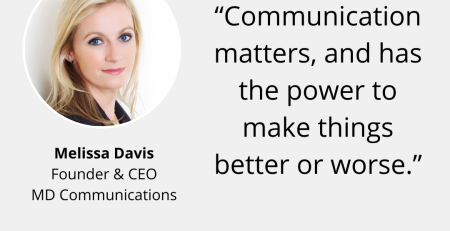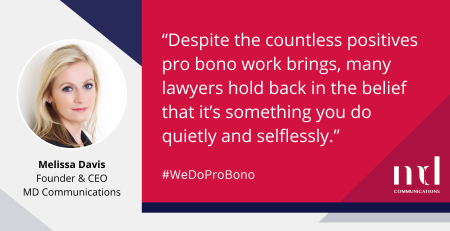MD Communications, the leading reputation consultancy for law firms, today launched a new report, Workplace Culture in the Legal Sector, based on original research surveying law firms, chambers and in-house legal departments, which reveals that workplace culture is a business critical issue.
95% of 150 law firms, chambers and in-house legal departments, surveyed for our white paper, stated that workplace culture was ‘very important’ or ‘important’ to business success.
84% strongly agree that positive culture enhances employee retention. 71% strongly believe it affects recruitment.
But legal leaders face conflicts in trying to establish a good workplace culture. 39% feel that remote working has negatively affected workplace culture, though greater flexibility is recognised to assist aims and values that support equality and diversity.
Only one third of respondents said that they felt the culture at their current workplace was very good.
MD Communications hopes the report will help shape key conversations around the importance of culture in the legal sector, which will be widely discussed in Mexico City at the International Bar Association’s annual conference this week.
Melissa Davis, founder and chief executive of MD Communications, said: ‘Lawyers, naturally sceptical, recognise that saying you have strong values is not the same as living them. Stating that a firm values diversity, transparency, and respect does not automatically make it true. There must be evidence to support these claims, beginning with establishing values and standards that reflect a firm’s desired culture.
‘This white paper highlights the need for law firms to align service, quality, and outcomes with their brand, all while maintaining strong cultural values. A key audience for this cultural and branding strategy is internal staff, who need to feel empowered to embody the organisation’s values. This is especially important for leadership, where expectations should apply equally, regardless of billings.
‘Our clients frequently mention culture as a critical factor for commercial success, including recruitment, retention, and client satisfaction.’
Contributor comments
Michelle Holford, Chief Commercial Officer at Slaughter and May comments, ‘Culture is everything. Creating an environment in which people feel safe, supported and empowered is essential to building a strong and positive culture. We try and do this by recognising and rewarding behaviour consistent with our values, having a clear no blame approach to problem solving and taking time to get to know each other. It takes time and effort to do this – it can’t be faked, it can’t be done in a day, it takes energy and drive but if you are a leader this is absolutely in your hands to achieve.’
Michelle adds, ‘And, oh the rewards if you get it right… are phenomenal. Better performance, better outcomes, lower staff turnover and an all round happier and more fun working environment. A note on poor culture though: it’s not all bad – you can learn. You can watch and learn and when you get your chance, you can ensure everything you have observed does not happen on your watch. Culture is everything. People make it happen.’
Jeff Davis, Chief Legal & Corporate Affairs Officer, Ontario Teachers’ Pension Plan, says: ‘Firm culture plays a critical role in our law firm selection process. A law firm may have the “smartest” or “most experienced” lawyers, but without a healthy culture, they will never reach their full potential, and carry concealed risks to clients which ultimately surface over time. And conversely, a law firm with a healthy culture generates top performance with a talent pool that develops and grows, is deeply valued by its clients, and will beat out its competition in the end.’
Media coverage
News of our white paper release has been covered in the legal press, in Edward Fennell’s Legal Diary.
Edward writes: “That is the conundrum. While potential recruits are increasingly demanding flexible working and WFH it may turn out that, in the long run, this diminishes a sense of being part of a strong culture.”


